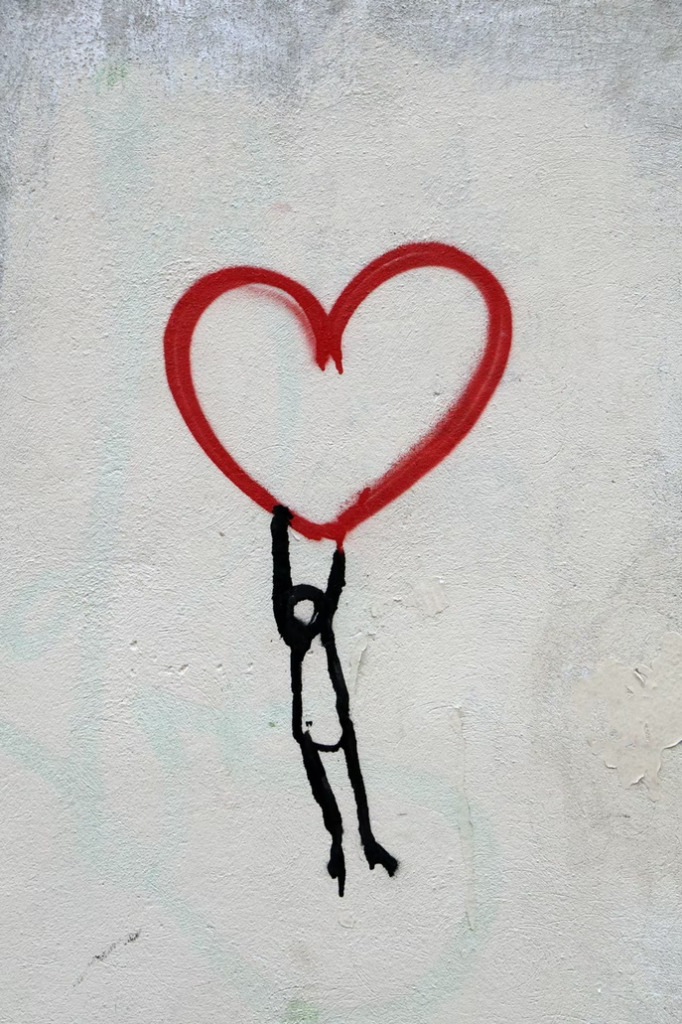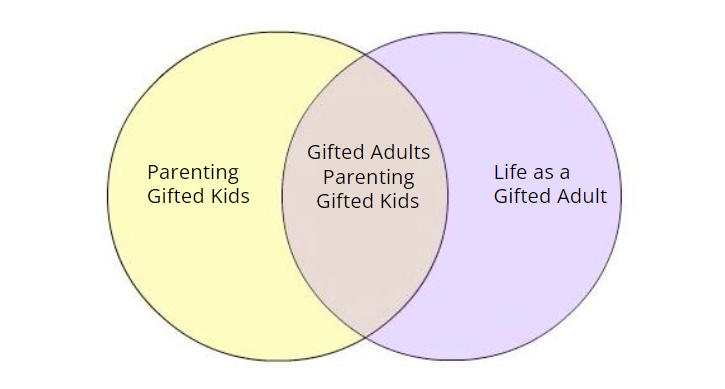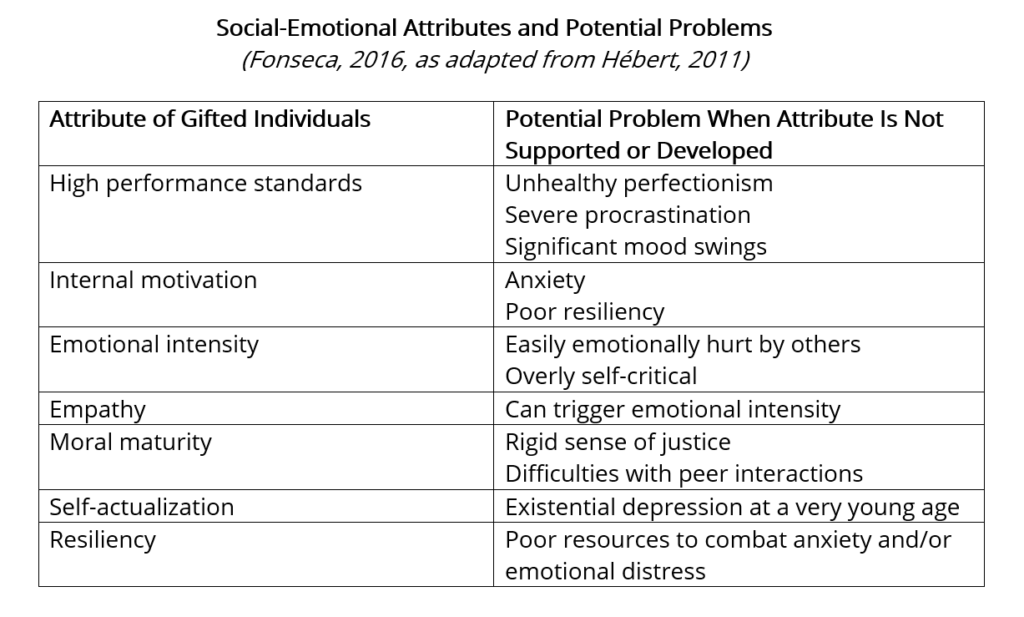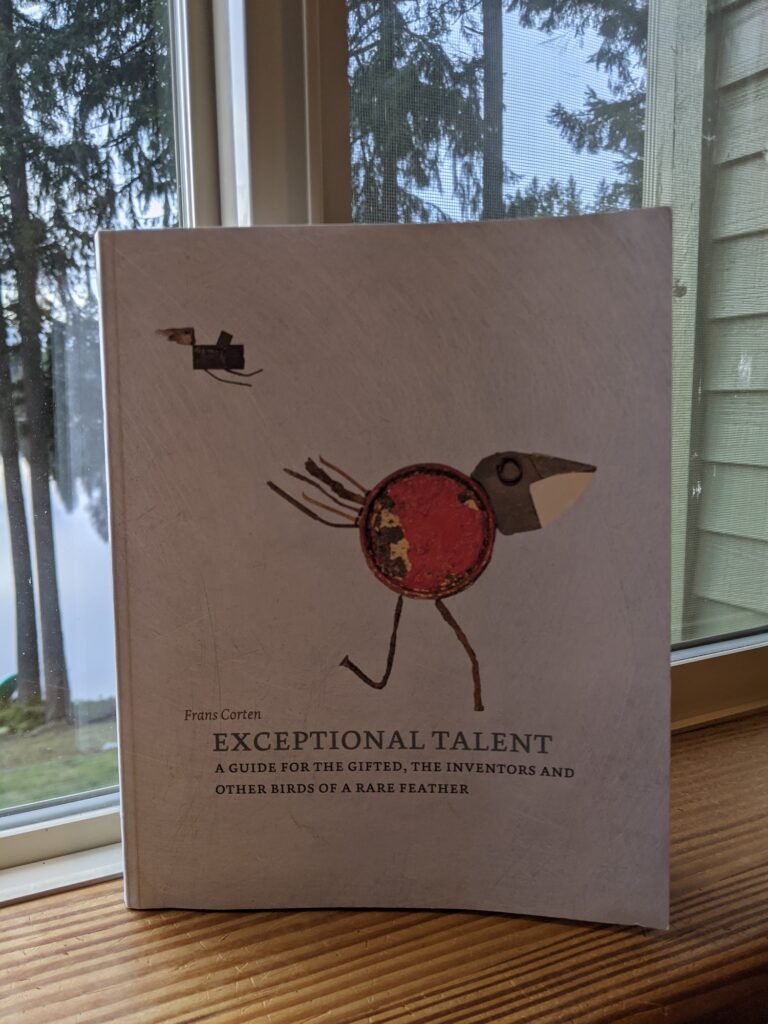
A true benefit of pandemic times, for me, has been the ability to attend conferences I otherwise wouldn’t have the time or energy for, given how exhausting it is to travel. (Traveling is amazing and wondrous, but also exhausting; that’s most definitely a topic for another blog post.)
Not only have pretty much all conferences and presentations been virtual this year, but the majority have been recorded and thus available for viewing at a later time. It couldn’t get more convenient than that for busy working parents.
With that said, I’m here to share my take-aways from the remaining SENG Spring Mini-Conference sessions I attended after-the-fact – i.e., by accessing the recordings. As I mentioned in my last post, SENG tends to pull together some truly amazing speakers, and is a non-profit well worth joining and supporting.
The sessions I’ll be reporting on here are:
- Dr. Ross Greene on “Collaborative & Proactive Solutions: Moving From Power and Control to Collaboration and Problem-Solving”
- Julie Skolnick on “Managing Social Emotional Engagement, Effective Communication and Emotion Regulation During the Pandemic”
- Debbie Reber on “Fostering Self-Knowledge and Personal Strengths in Your 2e Child”
- Dr. Richard Cash on “Getting Out of the Quagmire: A Roadmap for Redirecting Underachievers and Selective Producers”
- Dr. Susan Baum on “Gifts Come in Different Packages: It’s All About Style”
Whew. This is a lot, and each topic deserves its own post, but for now I will simply share key ideas and take-aways.
Dr. Ross Greene has been writing about and presenting on so-called “explosive” kids for decades; his books are all well worth reading.
Dr. Greene urges parents, educators, and others working with high-intensity kids to be open to the following paradigm shift: kids “act out” when they lack the skills to engage in what’s being asked of them, either by adults or themselves. If you can identify both what kids are being asked to do (i.e., the unsolved problem), and the skills they are lacking in order to do this (i.e., the lagging skills), then you can prioritize and target skills instruction.
Dr. Greene posits that he has never, ever in his lengthy career met a kid who genuinely prefers to not do well; rather, they’re simply lacking the skills to do so.
Skill areas that kids tend to be lagging in include the following:
- executive functioning skills
- language/communication skills
- emotion regulation skills
- cognitive flexibility skills
- social skills
Dr. Greene recommends that caretakers begin by completing an ALSUP questionnaire (Assessment of Lagging Skills and Unsolved Problems) for a child, then prioritize the child’s problems based on safety, frequency, and gravity. (We can’t work on everything at once.)
At this point, we must consider which of the following plans to use:
Plan A is to simply to solve a problem unilaterally – i.e., use your adult hand to force the issue. If a child is putting herself or others in immediate danger, this is the obvious “plan” to choose.
Plan C is based on the idea that sometimes we have to set certain problems aside and acknowledge they’re not a top priority right now, which might mean coming up with an interim plan for these problems (i.e., temporarily suspending certain expectations for the child).
Dr. Greene’s Plan B for solving high-priority problems collaboratively consists of the following steps:
- Empathy: Gather information from the child in terms of what’s hard for them about meeting expectations. We need to shift away from making assumptions, and instead talk with our kids to hear their perspectives.
- Define Adult Concerns: Adults must identify the concerning behaviors they’re seeing in kids. Since the problems children face tend to be predictable, once we look for the patterns, we can be proactive rather than reactive.
- Invitation: Collaborate on a solution that is realistic and mutually satisfactory. Both these two conditions are critical for long-term success, given that if the child doesn’t agree, then you are looking at temporary “compliance” at best.
This process is obviously much easier said than done – however, Dr. Greene’s work is invaluable in terms of offering a sequential approach to solving situations with kids who are unable to thrive in mainstream spaces without adult intervention and support. It was good to hear from him “live”.
Julie Skolnick runs the website withunderstandingcomescalm.com, where she offers guidance to 2E kids and adults.
In her presentation for SENG on coping strategies during the pandemic, she began by pointing out the “great irony” of the fact that 2E kids often have a deep desire to connect, but also present with intensities that can be “too much” for many, leading to internal messaging that somehow their authentic selves are wrong.
Common struggles for 2E kids (do these sound familiar?) include the need to be right; being too goal oriented; challenges with executive functioning; (dis)trust; being easily distractible; and living with one or more of Dabrowski’s “over-excitabilities” (psychomotor, sensual, intellectual, imaginational, and emotional).
Julie presented the “Skolnick Formula for Emotional Disregulation”™, in which she posited that:
- the giftedness characteristics of intellectual interests, existential considerations, asynchronous development, perfectionism, and overexcitabilities tend to lead to
- anxiety, stress, frustration, and misunderstanding, which then lead to
- emotional dysregulation (manifesting as challenging behaviors), which elicits
- reactions and responses from those around them . . .
. . . which then fuels the child’s anxiety, stress, and frustration. It can be a vicious cycle. Just as in Dr. Greene’s approach described above, Julie argues that we should learn to anticipate trigger moments for our kids and intervene proactively rather than reactively.
Julie reminded us that environment for 2E kids is critical – and yet the “triple P” environment we’ve been living with throughout the last year – pandemic, politics, and protests – has brought a heightened sense of discord, dystopia, and dismay for many 2E kids. Communication with teachers remains critically important, yet has also been more challenging than ever given the inherent limitations of learning through screens, such as tech issues; teacher distractions; household distractions (for the student); and the inability for teachers to manage or defuse issues one-on-one.
Julie’s number one message for audience members was to remember the importance of connection. Strategies she listed for enhancing connection include: being honest; leading with empathy; giving kids the benefit of the doubt; giving up the need to be ‘right’; giving kids a ‘piece of the pie’; shifting priorities; taking care of yourself; doing something for someone else; keeping a ‘gratitude attitude’; and starting each day anew.
The most tangible take-away for me from Julie’s talk was the metaphor of “letting go of a rope”: she asked everyone in the audience to pretend that we were tugging on a rope – tugging, tugging, tugging, tugging – and then . . . we were asked to simply let go of the rope. This, she explained, can be a useful way to approach communication challenges with our kids. Every now and then, we should simply let it go. Breathe. Pause. Give it a moment. Let go of the rope. We can return to it later.
Debbie Reber is a beloved staple of my parenting repertoire. After attending a SENG parent support group a couple of years ago, I binge-listened to Debbie’s TILT Parenting podcast series, and it was a game-changer in terms of getting me quickly up to speed on major players and concepts in the 2E world. Debbie’s son Asher (now 16) fits a similar profile to my son D., so her personal reflections feel especially pertinent.
In this talk for SENG, Debbie focused on promoting self-knowledge and personal strengths in our 2E kids, with the ultimate goal of raising kids who are curious and open to feedback. She began by discussing ways to (and whether or not to) bring up a child’s diagnoses with them, reminding us that if/when we do so, we should: begin with strengths; be honest; consider this part of an ongoing conversation with our kids; and ask questions.
Other hints in her talk included:
- We should be mindful about using language that supports rather than shames our kids, and that validates and empathizes with their challenges.
- We need to give our kids space, and remember that it’s perfectly fine (and usually preferable!) to debrief a challenge after the storm has passed.
- When reflecting back on particularly “low” moments, we should get curious, connect, repair, and then forge ahead.
Finally, Debbie emphasized the need for us to develop our kids’ sense of agency, control, motivation, and self-direction. She is a huge fan of William Stixrud and Ned Johnson’s book The Self-Driven Child: The Science and Sense of Giving Your Kids More Control Over Their Lives (2018), which I will eventually be reporting on for this blog.
In closing, Debbie reminded us to make self-discovery a priority as parents, too. Here’s to that!
Dr. Rick Cash’s presentation was geared towards helping teachers differentiate their instruction and personalize their connections with students in order to address issues of underachievement.
He discussed the difference between non-producers (students who refuse to do any work, though they often perform well on summative assessments) and selective producers (students who engage in work they feel personally motivated by). He reminded us that affect, behavior, and cognition all play a part in students’ performance, and offered the following roadmap for teachers to follow (comparable to a Gradual Release of Responsibility pedagogical approach):
- modeling while students observe (“I do, you watch”)
- asking students to “copy and do” (“I do, you help”)
- engaging students in guided practice (“You do, I help”)
- promoting independence and application in students (“You do, I watch”)
He further discussed different “learner orientations”, distinguishing between students with:
- a mastery approach (kids who work hard to achieve their personal best)
- mastery avoidance (kids who are comfortable with being “good enough”)
- a performance approach (kids who compete to be better than others)
- performance avoidance (kids who avoid “performing” at all)
Finally, Dr. Cash presented what he refers to as the RIC essentials: Reliable Relationships, Individual Importance, and Community Connections.
These are solid guidelines to follow in all walks of life, and especially essential in school.
Dr. Susan Baum’s presentation was a lovely end to a jam-packed conference. Dr. Baum is the Director of The 2e Center for Research and Professional Development at Bridges Academy in Southern California, and she brings infectious enthusiasm to the work she does.
She shared about four different “personality profiles” she’s developed, which help us to better understand ourselves and our kids. The profiles are:
- practical managers
- learned experts
- creative problem solvers
- people persons
She pointed out that we all have components of each of these in ourselves – and, critically, we are able to call up elements of them when/as needed. For instance, even those of us who are decidedly not “people persons” at heart can learn tools to manage being in groups on occasion, especially when necessary (i.e., for work). Meanwhile, those who normally function as “creative problem solvers” or “learned experts” can tap into practical management skills every now and then (albeit sometimes with necessary coaching and support).
Dr. Baum raced breezily through her slideshow (there was so much to share!), describing common characteristics of each of these personality profiles, what a “good day” looks like for someone fitting that profile, common needs and issues that come up, and keys to negotiation (focusing specifically on school age kids). She ended each “type” with an example of a photo of a real-life famous adult and their actual desk or workspace. Here’s a brief overview of the four types:
- Practical managers are time keepers and organizers who operate in a concrete sequential fashion. They like to check things off of lists, and prefer days when life is predictable and there’s an agenda available. They thrive on structure, but may struggle with lack of flexibility, pessimism, and perfectionism. The ideal activities for these kids include tasks with specific directions that allow them to “show what they know” through charts, graphs, and fact sheets. Bill Gates fits this profile, and apparently has an exceptionally neat, uncluttered desk.
- Learned experts are thinkers and logicians who operate in an abstract sequential fashion. They love to strategize, debate, discuss, read, and solve puzzles, and prefer days when life is somewhat predictable but there is plenty of time for diving deep into a topic. They thrive on intellectual stimulation with smart people, but may struggle with arrogance, sarcasm, and/or an overly argumentative nature. The ideal activities for these kids include research projects and being able to present their ideas through reports, editorials, debates, or political cartoons. Al Gore fits this profile, and apparently has a sprawling, jam-packed workspace with numerous paper piles and devices all over the place.
- Creative problem solvers are inventors, adventurers, and risk takers. They likes to do things their own way, and a good day consists of having fun and not being constrained. They thrive on competition, risk, challenge, and choice, but may struggle with lack of ability to follow directions, not paying sufficient attention to details, overly high energy, and/or too much focus on thrill seeking. The ideal activities for these kids involve designing and creating something to show their knowledge in an open-ended way, often through multi-media platforms. They can and do work anywhere (including on the floor), and need to be able to to shift positions, take breaks, and move around. Steve Jobs was an example of a creative problem solver combined with a learned expert.
- People persons are sensitive, emotional, and creative ambassadors and artists whose best days involve being appreciated, loved, and feeling special. They may get lonely, overly sensitive, and dramatic, work too hard to fit in, and have a tendency to be scattered and lose things. However, they make awesome leaders given how much they care about, understand, and can connect with others. The ideal activities for these kids are creative and artistic, feel personally relevant, and allow for small group or partner work. Their ideal work space is unique to them, while allowing them to be in earshot of family members. Bill Clinton is an example of a people person.
Wow – these personality profiles are an incredibly useful way to think about the strengths and differences among us. I consider myself primarily a “learned expert” (this blog probably gives ample evidence of that!) but I’m also a “people person” given that I love teaching, coaching, and getting to know interesting new people. Thankfully, I can also easily slip into being a “practical manager” as needed, though I find it exceedingly annoying that I’m the only one in my household who seems to have facility with this, since it’s tiring to manage everything – especially when I’d rather be off learning something new or making connections with others.
My husband and 12-year-old daughter C. are primarily “creative problem solvers” who routinely get lost in fantasy and exploration and don’t care if they’re surrounded by clutter; both are also “people persons” who care a lot about making connections in between their creative problem solving. My 11-year-old son D. is primarily a “learned expert” who LOVES lists, facts, and predictability, but he has plenty of “creative problem solver” in him as well. My 8-year-old daughter I. is primarily a “people person” with a passion for art, big emotions, a strong desire to connect, and a preference for working with others whenever possible, but also exhibits plenty of “creative problem solver” in her need to have flexibility and express her unique flair.
So – we’re a mixed household with diverse needs and preferences.
This blog post is beyond long enough, so I’ll end it here. I’m grateful to have so much new and interesting information to chew on (the learned expert in me is in heaven) – and I hope you’ve gained some new areas for exploration, too.
Happy learning!
Copyright © 2021 by HalfoftheTruth.org. Please feel free to share with attribution.




 I started this blog
I started this blog 









